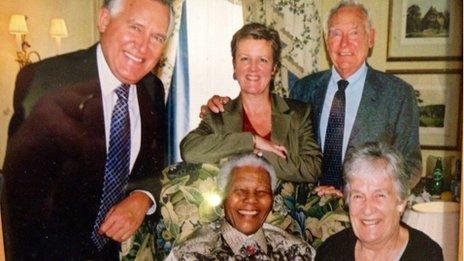Robert Mugabe 'went from freedom fighter to evil dictator' says Lord Hain
- Published
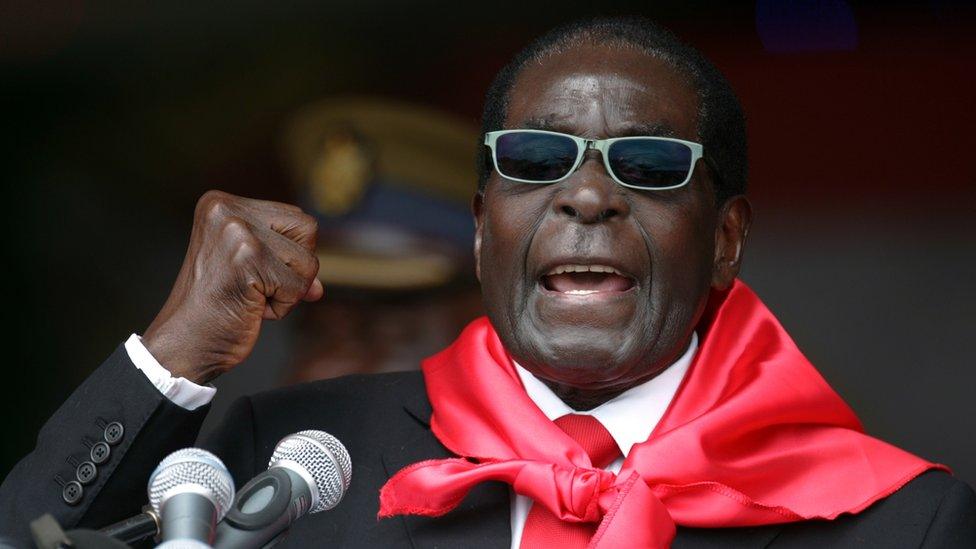
Mr Mugabe died in Singapore
Robert Mugabe went from "a widely admired freedom fighter" to "an evil, repressive, corrupt dictator", according to Lord Peter Hain.
Mr Mugabe, who was Zimbabwe's first prime minister after independence from the UK in 1980, has died aged 95.
He was ousted in a military coup in 2017 after 37 years in power.
Lord Hain, the former Neath MP and anti-apartheid campaigner, met Mr Mugabe in 1999 when he was Minister for Foreign and Commonwealth Affairs.
'Mugabe had a fanatical side to him' - Lord Hain
Mr Mugabe's early years were praised for broadening access to health and education for the black majority, but he was later caught up in alleged corruption and human rights abuses.
Kenya-born Lord Hain, who grew up in apartheid South Africa, said: "This is a tragic case study of someone who began as a widely admired freedom fighter, bringing his country from repressive racist white minority rule under the old Ian Smith regime of the '60s and '70s, into the newly independent Zimbabwe in January 1980, winning a landslide that I welcomed and many anti-apartheid leaders around the world did, too."
He said Mr Mugabe's victory "foretold the eventual downfall of the evil tyranny of apartheid in South Africa".
"But then he went from that into an evil, repressive, corrupt dictator, which was tragic for his country and tragic for his own reputation in that transformation from what he was before and what he became," he added.
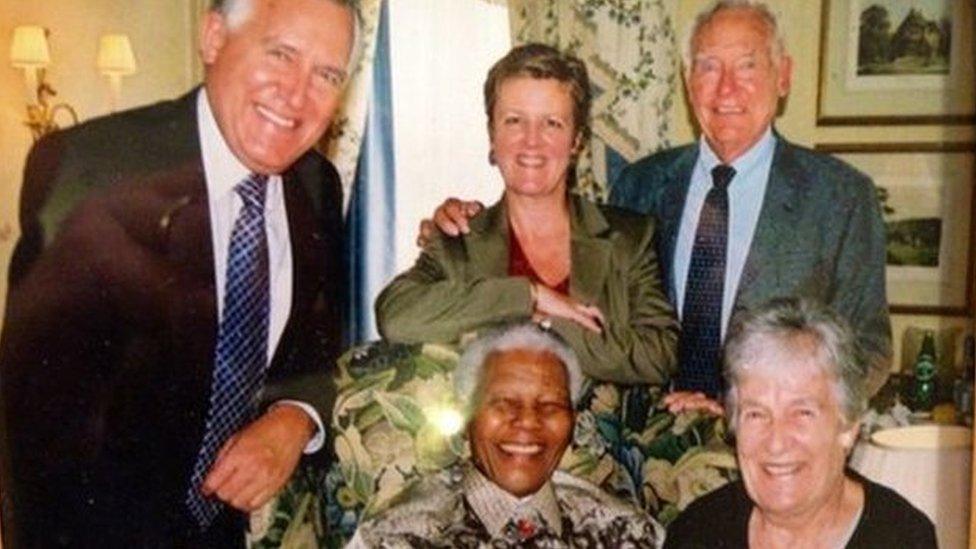
Nelson Mandela never forgot the part the Hains played in the anti-apartheid movement
Lord Hain described meeting Mr Mugabe in November 1999 after relations between Zimbabwe and Tony Blair's government had "deteriorated".
"We were providing hundreds of millions of pounds potentially for land reform support," Lord Hain told BBC Radio Wales' Breakfast programme.
"But it was being done corruptly. So relations had deteriorated from what they had been under the Conservative administration, which was closer to him.
"I tried to repair those relations."
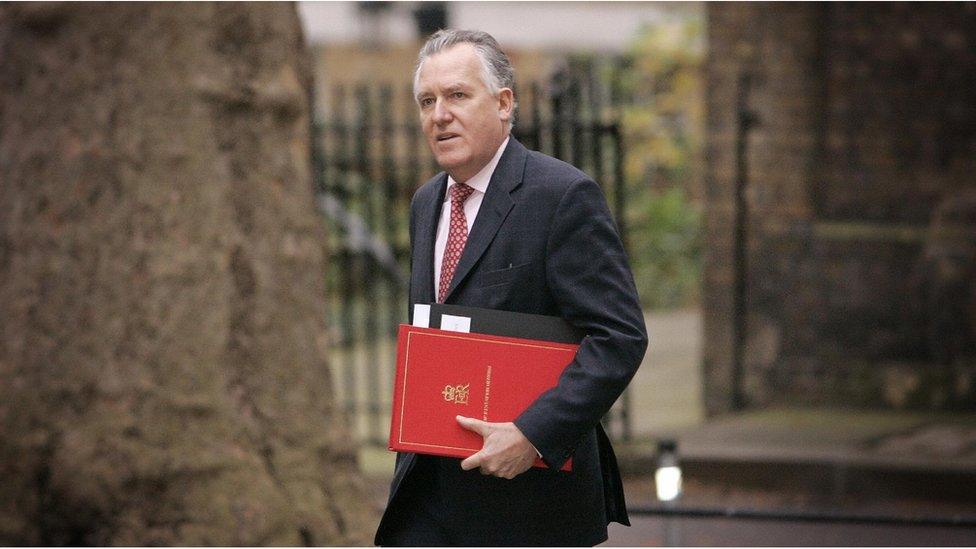
Lord Hain was in the cabinet of both Tony Blair and Gordon Brown, in roles including Welsh and Northern Ireland Secretary, and Leader of the Commons
He described the relationship between them as being "good" following a meeting at a London hotel on the Friday, before becoming "terrible" the next day.
"Saturday morning, he was about to go shopping with his wife Grace, and Peter Tatchell - the gay rights activist - performed a citizen's arrest on him," Lord Hain said.
"I knew nothing about it, it was Peter Tatchell's decision, a protest against Mugabe's rampant homophobia.
"Mugabe blamed me in a phone call from his foreign minister the following Monday."
'Peter Tatchell's wife'
Lord Hain said because he had organised anti-apartheid protests before, Mr Mugabe thought he had staged it.
"He denounced me as Peter Tatchell's wife, which was news to me, my wife and Peter Tatchell," he added.
That was the last proper meeting they had, Lord Hain said, as a war of words developed with Zimbabwe going into a "spiral" of unemployment and deprivation.
- Published6 September 2019
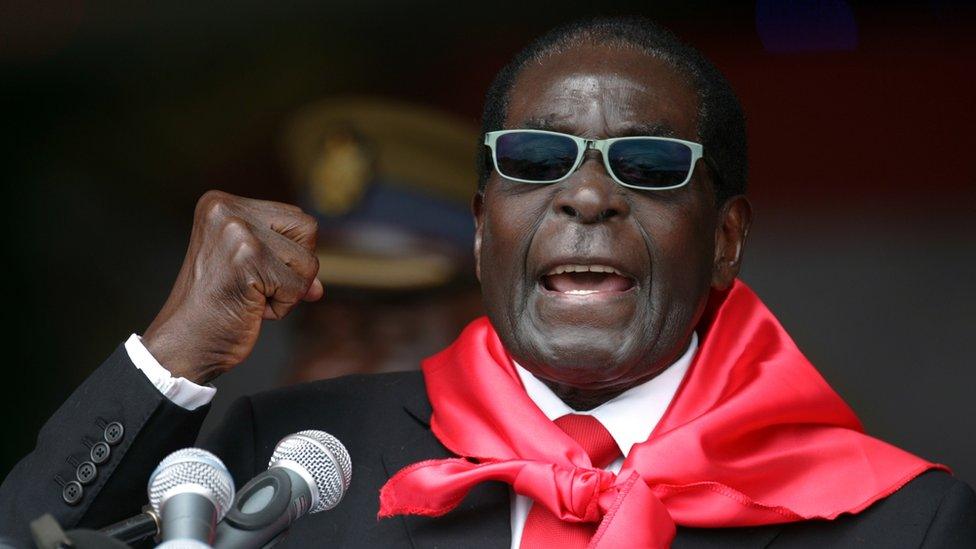
- Published7 June 2014
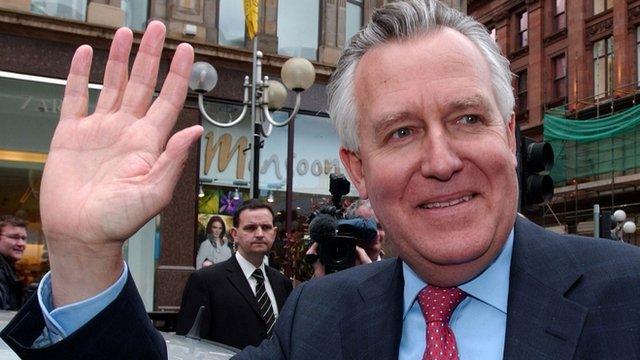
- Published29 January 2014
